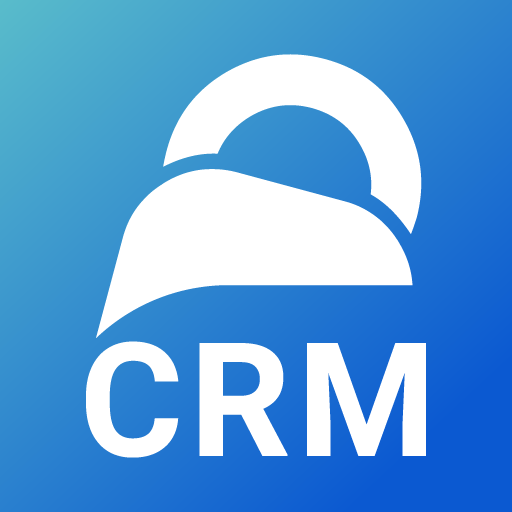For manufacturers, efficiency, accuracy, and visibility are paramount. Enterprise Resource Planning (ERP) software is a critical tool for achieving these goals, integrating all aspects of the business into a single, unified system. But with so many ERP options available, how do you choose the best one for your manufacturing business? This article provides a guide to understanding manufacturing ERP, key features, different types, and how to select the right solution.
Why is ERP Software Essential for Manufacturing?
ERP software helps manufacturers streamline operations, reduce costs, improve decision-making, and gain a competitive advantage. Key benefits include:
- Increased Efficiency: Automate tasks, optimize workflows, and reduce manual data entry.
- Reduced Costs: Minimize waste, optimize inventory levels, and improve resource utilization.
- Improved Visibility: Gain real-time insights into all aspects of your business, from production to financials.
- Better Planning and Scheduling: Optimize production schedules, manage resources effectively, and meet customer demand.
- Enhanced Collaboration: Improve communication and collaboration between departments.
- Improved Customer Satisfaction: Deliver products on time and meet customer expectations.
Key Features to Look for in Manufacturing ERP Software
A robust manufacturing ERP system should include these essential features:
Production Planning and Scheduling
- Create and manage production schedules.
- Optimize resource allocation (labor, equipment, materials).
- Track production progress.
- Adjust schedules based on real-time data.
Inventory Management
- Track inventory levels in real-time.
- Manage multiple warehouses and locations.
- Optimize inventory levels to minimize carrying costs and prevent stockouts.
- Automate reordering processes.
Supply Chain Management (SCM)
- Manage relationships with suppliers.
- Track purchase orders and deliveries.
- Optimize the flow of materials and goods throughout the supply chain.
Material Requirements Planning (MRP)
- Calculate the materials and components needed for production.
- Generate purchase orders automatically.
- Ensure that materials are available when needed.
Quality Management
- Track and manage quality control processes.
- Identify and address quality issues.
- Ensure compliance with industry standards.
Shop Floor Control
- Track the progress of work orders on the shop floor.
- Monitor machine performance and utilization.
- Collect real-time data from the shop floor.
Costing and Accounting
- Track production costs accurately.
- Manage finances and accounting.
- Generate financial reports.
Reporting and Analytics
- Provide real-time insights into key performance indicators (KPIs).
- Generate customized reports.
- Support data-driven decision-making.
Other Specialized Features (Optional)
Some manufacturing ERP systems also offer specialized features such as:
- Customer Relationship Management (CRM)
- Product Lifecycle Management (PLM)
- Human Resources (HR)
ERP for Different Types of Manufacturing
The specific needs of a manufacturing business vary depending on the type of production process:
Discrete Manufacturing ERP
Discrete manufacturing involves assembling distinct parts into a finished product (e.g., cars, electronics, appliances). Key requirements for discrete manufacturing ERP include:
- Bill of Materials (BOM) Management: Managing complex BOMs with multiple levels.
- Routing Management: Defining the sequence of operations for each product.
- Work Order Management: Tracking and managing work orders.
Process Manufacturing ERP
Process manufacturing involves combining ingredients according to formulas or recipes (e.g., food and beverage, chemicals, pharmaceuticals). Key requirements for process manufacturing ERP include:
- Formula/Recipe Management: Managing complex formulas and recipes.
- Batch Production Control: Tracking and managing production in batches.
- Lot Traceability: Tracing materials and products throughout the supply chain.
Mixed-Mode Manufacturing ERP
Some manufacturers use a combination of discrete and process manufacturing methods. These businesses need an ERP system that can handle both types of production.
Top Considerations When Choosing Manufacturing ERP Software (Beyond Features)
Beyond the core features, consider these factors:
Cloud vs. On-Premise Deployment
- Cloud ERP: Hosted by the vendor and accessed via the internet. Offers lower upfront costs, automatic updates, and scalability.
- On-Premise ERP: Installed on your own servers. Offers more control but requires higher upfront investment and ongoing maintenance.
Scalability
Choose a system that can grow with your business as your needs evolve.
Integration Capabilities
Can integrate with other apps.
Vendor Reputation and Support
Research the vendor’s reputation and the quality of their customer support.
Total Cost of Ownership (TCO)
Consider all costs, including software licensing, implementation, training, and ongoing maintenance. Don’t just focus on the initial price.
Industry-Specific Solutions
Some ERP vendors specialize in specific manufacturing industries (e.g., food and beverage, automotive). These industry-specific solutions may offer features and functionalities tailored to your particular needs.
Leading ERP Software Vendors for Manufacturing (Brief, Objective Overviews)
Here are a few of the leading ERP vendors that offer solutions for manufacturing businesses:
- SAP: A global leader in ERP software, offering a comprehensive suite of solutions for businesses of all sizes. SAP’s manufacturing solutions are particularly strong for large enterprises.
- Oracle NetSuite: A cloud-based ERP system that is popular with small and medium-sized businesses. NetSuite offers a comprehensive set of features for manufacturing, including production planning, inventory management, and supply chain management.
- Microsoft Dynamics 365: A suite of business applications from Microsoft, including ERP and CRM solutions. Dynamics 365 offers a range of options for manufacturers, from small businesses to large enterprises.
- Infor: A global provider of industry-specific ERP solutions. Infor offers a variety of manufacturing ERP systems tailored to different industries, such as automotive, aerospace, and industrial manufacturing.
- Epicor: A provider of ERP software for mid-sized businesses. Epicor’s manufacturing solutions are known for their ease of use and flexibility.
This is not an exhaustive list, and the best choice for you will depend on your specific needs and budget.
Conclusion
Choosing the right ERP software is a critical decision for any manufacturing business. The “best” ERP is the one that best fits your specific needs, budget, and industry. By carefully considering the features, types, and factors discussed in this article, you can narrow down your options and select an ERP system that will help you streamline operations, improve efficiency, and gain a competitive advantage. Don’t just look for a list of “best” vendors; focus on finding the right solution for your business.
